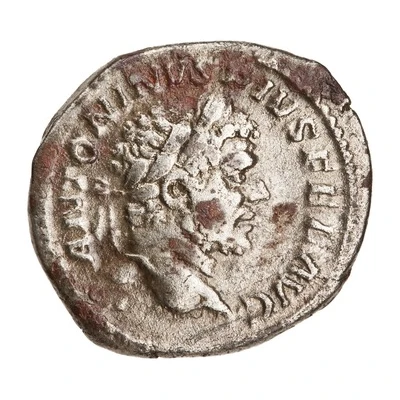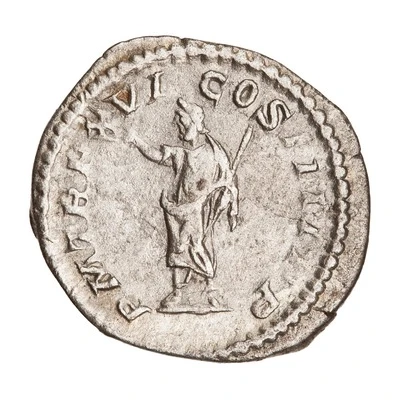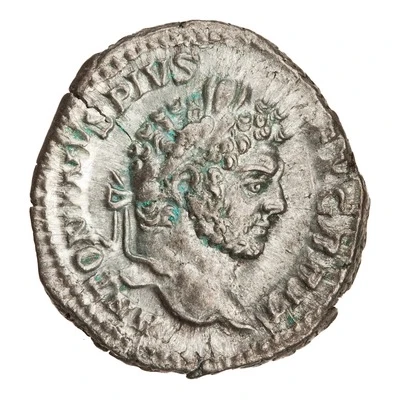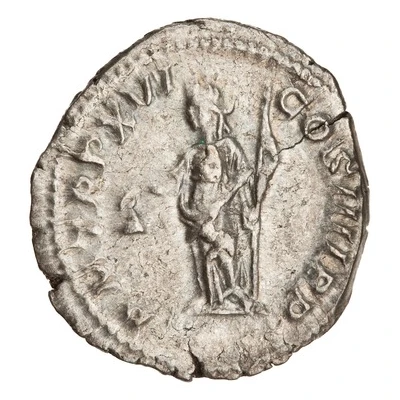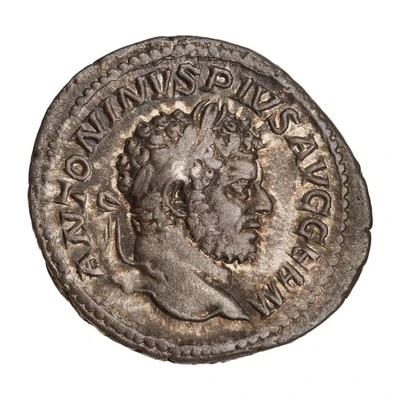
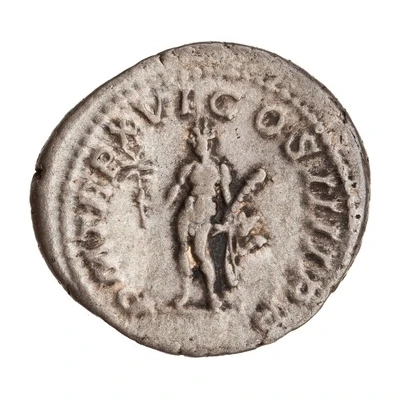

© American Numismatic Society (ANS)
Denarius - Caracalla P M TR P XVI COS IIII P P; Serapis
213 year| Silver | 3.4 g | 19 mm |
| Issuer | Rome › Roman Empire (27 BC - 395 AD) |
|---|---|
| Emperor | Caracalla (Marcus Aurelius Antoninus Caracalla) (198-217) |
| Type | Standard circulation coin |
| Year | 213 |
| Value | 1 Denarius |
| Currency | Denarius, Reform of Augustus (27 BC – AD 215) |
| Composition | Silver |
| Weight | 3.4 g |
| Diameter | 19 mm |
| Shape | Round (irregular) |
| Technique | Hammered |
| Demonetized | Yes |
| Updated | 2024-10-05 |
| Numista | N#273315 |
|---|---|
| Rarity index | 97% |
Reverse
Serapis, wearing polos on head, standing left, raising right hand and holding transverse sceptre in left hand.
Script: Latin
Lettering: P M TR P XVI COS IIII P P
Translation:
Pontifex Maximus, Tribunicia Potestate Sexta Decima, Consul Quartum, Pater Patriae.
High priest, holder of tribunician power for the 16th time, consul for the fourth time, father of the nation.
Comment
Mass varies: 3.24–3.531 g;Example of this type:
American Numismatic Society (ANS)
Source:
Online Coins of the Roman Empire (OCRE)
Interesting fact
One interesting fact about this coin is that it features an image of Serapis, a deity that was worshipped in the Roman Empire during the 2nd and 3rd centuries AD. Serapis was a syncretization of the Egyptian god Osiris and the Greek god Hades, and was often depicted with a modius, a grain measure, on his head, which symbolized his role as a god of fertility and agriculture. The inclusion of Serapis on this coin suggests that the Roman Empire was open to incorporating deities from various cultures and religions into their currency, reflecting the diverse and multicultural nature of the empire.
